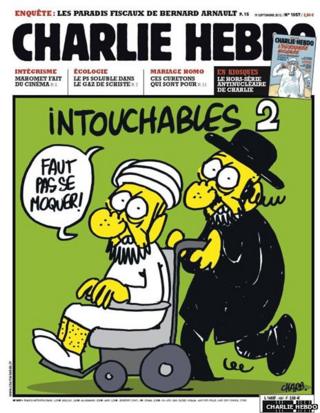TEN YEARS AGO
It was on January 7, 2015, that two Islamists went into the Paris offices of the satirical magazine Charlie Hebdo, murdering a caretaker on their way in, and burst into the weekly editorial meeting. Calling for the editor, Stéphane “Charb” Charbonnier, and four other cartoonists by name, they proceeded to murder them all—as well as three other members of the editorial staff, one of Charb’s police bodyguards, and a guest at the meeting. While fleeing the scene, the two terrorists, who turned out to be brothers, shot and killed a Muslim police officer at point-blank range.
It was the worst attack on the free press in a Western country in our lifetimes. And the massacre presaged another massacre, at a kosher supermarket in Paris days later, which served as a reminder that the Islamists have a distinct set of enemies in their literal sights. For once, albeit only for a moment, the free world seemed to rally in support of the victims. Soon afterward, world leaders—including, slightly surprisingly, the head of the Palestinian Authority, President Mahmoud Abbas, and Queen Rania and King Abdullah of Jordan, none with a glowing record on combating terrorism—marched through the streets of Paris in a show of solidarity. The slogan “Je Suis Charlie” was seen everywhere.
But as I pointed out promiscuously at the time, most people weren’t Charlie. In fact, almost nobody was. Supporters of the free press slightly mawkishly walked through the streets of Paris with pencils in their hands, as though this was any kind of stand. As I vividly recall Mark Steyn saying at the time, the best thing those demonstrators could have done was walk through the streets of Paris holding up the cartoons of Muhammad that the paper had run—which had caused repeated attacks on their offices even before 2015.
https://www.thefp.com/p/things-worth-remembering-he-died-standing-up-charlie-heb...

"You mustn't mock!"

 Forum
Forum

 Home
Home 

 Album
Album 

 Help
Help

 Search
Search

 Recent
Recent 

 Rules
Rules 

 Login
Login

 Register
Register





 Pages: 1
Pages: 1

